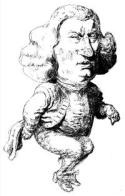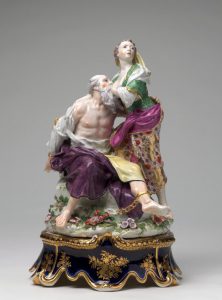Henry Hitchings, Dr Johnson’s Dictionary; The Extraordinary Story of the Book that Defined the World London: John Murray, 2005, 278 pp., $44.95, ISBN 0 7195 6631 2
One of the most attractive commemorations of the two hundred and fiftieth anniversary of Johnson’s Dictionary of the English Language is this book, a scholarly study of the Dictionary brilliantly packaged as an inviting volume for casual reading. Organised as a series of little essays, each headed by a word and a definition from the Dictionary, it takes you through Johnson’s life at the same time as it takes you through the alphabet.
Some of the words chosen are obvious, like Lexicographer and Patron; others, like Opulence and Ubiquity, provide occasions for discussions of mid eighteenth-century English culture, as revealed through attentive reading of the Dictionary’s definitions and choice of quotations. As Hitchings says, its pages continually offer up unexpected jewels’ – here polished and displayed to great advantage.
There is a lot of first-hand research behind the entertainment. The heading Factotum leads into a discussion of Johnson’s virtually unknown amanuenses, most of them Scots, with whom Johnson shared the attic at Gough Square for his years of “drudgery”. “Poor Peyton”, for example, the subject of one of Johnson’s most moving letters, comes to life briefly through Hitchings’ research into documents in the British Library with his shaky handwriting, the P’ of his signature executed with a self-conscious flourish.’
The two volumes of the Dictionary as it was first published, their weight the same as a very big Christmas turkey’, are interestingly described, too, with the focus, as throughout this book, much on the practicalities of authorship and publishing.
The biographical framework of the book seems more commonplace and casual. Johnson makes a bad marriage’ to Hetty (it was “a love match on both sides,” said Johnson). His work on the Dictionary “distracted Johnson from his marital responsibilities”, Hitchings declares; “the sheer volume of his work blocked out worries about her health”: plausible speculations, no doubt, but old-fashioned in their departure from verifiable evidence.
There is also a bit of abject political correctness when the Dictionary is criticised as “middle-class, but also backward-looking, Anglocentric and male” (as if…). Elsewhere, Hitchings offers more subtle accounts of the tensions between description and prescription evident in the volumes: “to register language is to form it”, certainly, but “Johnson seeks to understand language”, not, as Chesterfield supposed, to civilise it.
In the advertisement to the second edition of his Life James Boswell boasted I have Johnsonised the land; and I trust they will not only talk, but think Johnson.’ As Hitchings testifies,’The Dictionary shows us how this really came about, and also why Johnson should be read.’
The book is illustrated, and full of judiciously culled information. Did you know that tycoon’ is a Japanese word, that typhoon’ is Chinese, and that Sir Thomas Browne (1605-82), who is quoted 2000 times in the Dictionary, invented the words literary’ and indigenous’?


